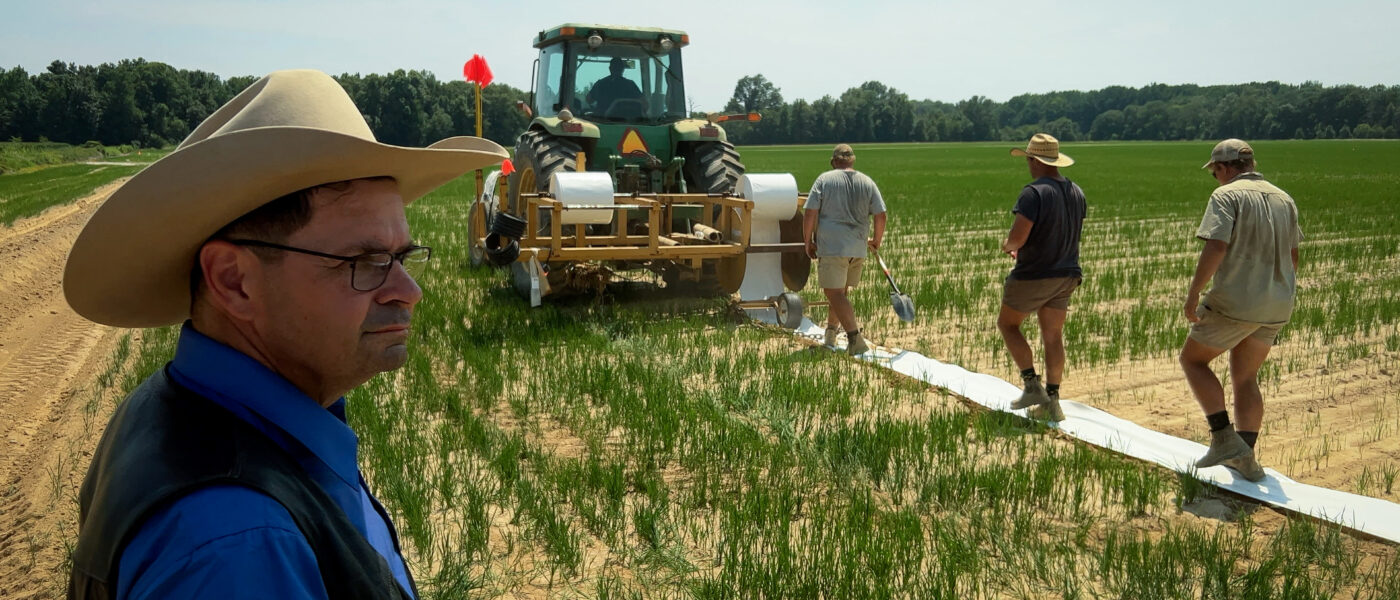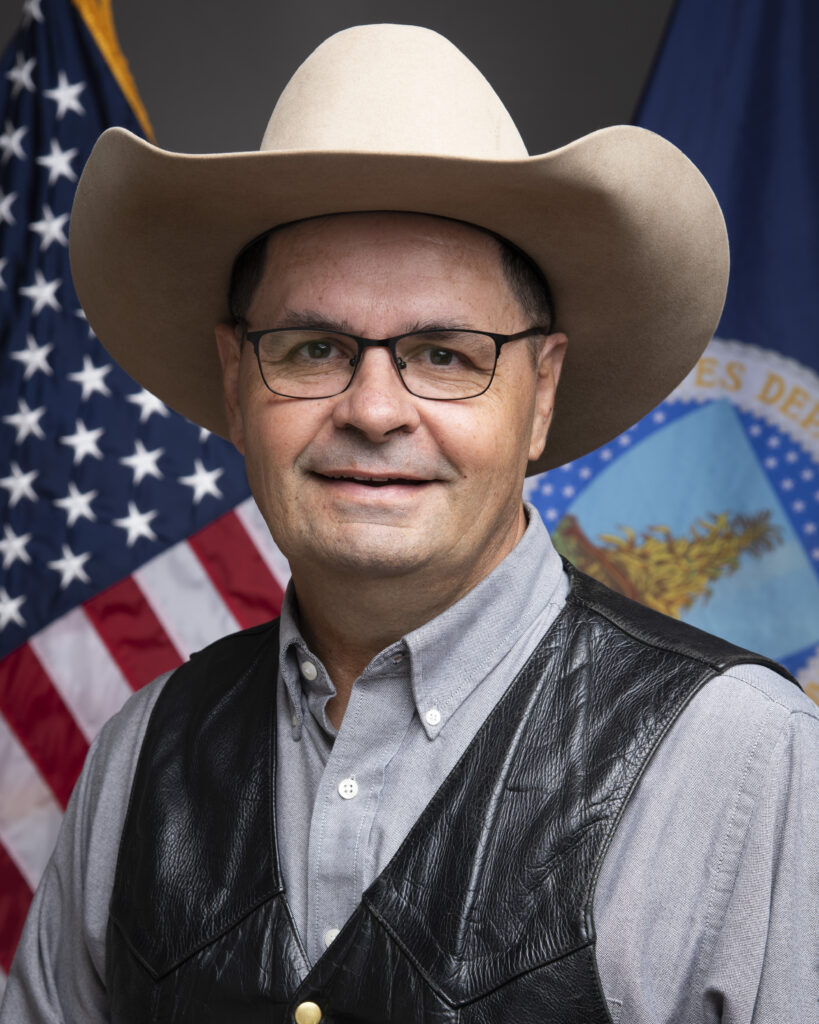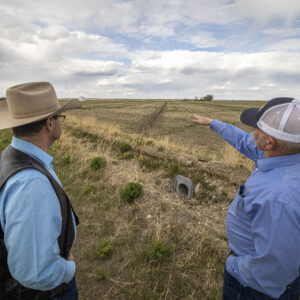As we heard throughout the first season of Against the Grain, American farmers have historically struggled to get the United States Department of Agriculture to listen to, and address their most pressing concerns. That was certainly true when Farm Aid was founded in the midst of the 1980s farm crisis when farmers were pushed off their land due to loan foreclosures. We’ve also heard that there’s a range of reasons why farmers – particularly farmers of color and Tribal producers – feel a sense of distrust towards the USDA.
But the USDA recently announced major rule changes that affect farmers’ access to and delivery of farm loans – set to go into effect on September 25, right after this year’s Farm Aid festival in Saratoga Springs, NY. In this bonus episode of Against the Grain, Farm Aid’s Communications Director and self-described “credit nerd” Jennifer Fahy explains the significance of this rule change. We also hear from Zach Ducheneaux, the USDA’s Farm Service Agency’s (FSA) administrator, who is perhaps the person most responsible for this sea change in USDA policy. Zach sat down with us at last year’s Farm Aid festival and told us about efforts that the FSA is making to change the culture of the agency and win the trust of American farmers.
Listen to the episode below. And, make sure to subscribe in your podcast app of choice!
Zach Ducheneaux
Zach Ducheneaux was appointed Administrator for USDA’s Farm Service Agency on February 22, 2021. In this role Ducheneaux provides leadership and direction on agricultural policy, administering loan programs, and managing conservation, commodity, disaster, and farm marketing programs through a national network of offices.
Ducheneaux previously served as the Executive Director of the Intertribal Agriculture Council and had been with the IAC since the 1990s. He has also previously served as tribal council representative for the Cheyenne River Sioux Tribe. He has spent his career educating people about the critical role of improved food systems, value-added agriculture, and foreign exports to respond to the enduring economic and social challenges facing Native Americans and reservations.
Ducheneaux serves on the board of directors for Project H3LP!, a nonprofit founded by his family to benefit their local community by providing life lessons through horsemanship. His family still operates the 4th generation ranch on the Cheyenne River Sioux Reservation.

Jen Fahy
Watch Videos Featured in this Episode
Margo Price performs “Hands of Time” at Farm Aid 2017 at KeyBank Pavilion in Burgettstown, Pennsylvania, on September 16.
Against the Grain Bonus EP 3, Zach Ducheneaux: Administrator with An Ear to the Ground
KURN: Hello and welcome to Against the Grain, the Farm Aid podcast. I’m Jessica Ilyse Kurn.
FOLEY: And I’m Michael Stewart Foley. This bite size bonus episode adds another layer to the issues around the challenges farmers face in trying to navigate the rules and regulations imposed by the U.S. Department of Agriculture.
KURN: Yeah, in the past, farmers have had problems with their concerns and demands being heard by the government but just a couple of weeks ago, a new rule was announced that is a direct result of the USDA listening to farmers’ needs.
FAHY: Hi, I’m Jennifer Fahy, Farm Aid’s Communications Director and resident farm credit nerd. The recent news that we are celebrating is the announcement of the enhancing program access and delivery for farm loans rule which goes into effect September 25th and is a major shift in thinking about how we do farm loans through the farm service agency and USDA,
FOLEY: These new rules are complicated and complex but one of the major changes involves collateralization. Here’s Jen again, explaining how it used to work.
FAHY: If you read the handbook, it says that the FSA should take up to 150% of the security of the loan. So that means assets will be used to securitize the loan. And the the wording is so confusing that actually sometimes it’s up to 200% that is taken. And so these farms have their homes often put up as security against their loan. And that is a major reason why a lot of folks don’t want an FSA loan. They’re worried about tying in their home to the success of their loan.
KURN: Farmers have been worried — and rightfully so — securing the future of their farms and their homes can be based on the irregularities of the weather or financial markets. So if a drought or flood happens or a crop or commodity price takes a sudden dive. For example, things could get really bad really fast for farmers under the previous parameters.
FOLEY: Farmers are always at the mercy of the weather and go into agricultural life knowing that they have a lot to lose. But the prior loan structure wasnt lifting farmers up, allowing them to exhale in an already stressful environment. Here’s Jen again, breaking it down.
FAHY: So another aspect of this rule is a program for distressed borrowers. So for those folks who have loans right now that they are having trouble repaying, there is an option for them to use what is called the distressed borrower set aside program. And if they’re having trouble repaying, they can push that payment to the end of the loan.
FOLEY: This sounds like someone is finally listening to actual farmers. Jess, do we know what shifted to get this in place?
KURN: We sure do: Zack Ducheneaux has entered the chat!
DUCHENEAUX: My name is Zack Ducheneaux. I’m the administrator at the farm service agency at the USDA. Here at Farm Aid to carry out the Secretary’s charge to all of us Political appointees: Go out there and listen to the stakeholders and then come back to town and try to work on solutions that improve agriculture for the many and the most
KURN: Zach came in with the current administration when the USDA was staffed in the winter of 2021.
DUCHENEAUX: I was in one of the first wave of political appointees to come on. Prior to that, I was the Executive Director at the Intertribal Agriculture Council, helping Native American producers improve their ag endeavors and really try to paint ag as a prime economic development opportunity.
FOLEY: We asked Zach to expound on what it’s like being a grassroots organizer working alongside other folks who also came from activist work who now find themselves on the inside of the government agencies. They spent so many years challenging
DUCHENEAUX: The best way I can explain it, near as I can tell is, if you complain long enough and loud enough, someone’s gonna say, “if you think you know every damn thing, why don’t you come try to run this outfit?”
KURN: Having Zach at the helm of the FSA is an incredible opportunity for farmers and rural people. His background as a rancher brings a level of understanding and expertise to the role. And he knows all too well about the real life challenges farmers face. He also knows how difficult it is for all kinds of farmers to access and use USDA programs. This is true across Democratic and Republican administrations alike and I appreciate the way he responded to you, Michael when you asked him about being confronted with that history,
FOLEY: Right? I was thinking about some of the obstacles to the kind of work that Zach’s trying to do. There’s obviously things like political opposition, but also cultural like skepticism because of USDA’s history. So I wanted to ask him a little bit more about that about how the agency is trying to overcome that history and to try to break down that skepticism and distrust.
DUCHENEAUX: I doubt this is probably the first time we’ve had a president and a Secretary of Agriculture and an administrator at the FSA all be in unison when we say the department has treated people poorly in the past, has discriminated against people in the past. And if we’re not willing to start the conversation, acknowledging that history, we’re gonna still struggle to build trust in these communities.
KURN: Zach started from the ground. He is constantly working to nurture the culture within the agency itself and make sure that FSA employees have what they need to do a good job for the people.
DUCHENEAUX: The notion that the private sector can do this better and can do it more efficiently, is frankly wrong. I usually cuss when I say that but we’re recording this. So I but our staff are under that type of pressure and we’ve got folks who are purportedly public servants denigrating the work of career federal officials and castigate them in the in the public sector and contemplate whether or not we should have them out there or not. And this secretary has been a tireless advocate, not only for the people that are working for us, but for more resources to be able to treat them better. And he’s been supportive of our efforts to do little things like student loan repayment programs and temporary retention incentives when we do have the resources. And I think we’ve got to make our staff feel valued so that they don’t come into that relationship, feeling less than so that they can put their best foot forward when a producer comes in who has felt that same persecution or devaluation.
FOLEY: One way to do that is something super simple that doesn’t seem like a revolutionary change, but it really helps. And that’s to shorten loan applications. Zach explains that they used to be 40 pages long, which was not only burdensome to farmers but also to the USDA employees who were reviewing those applications.
DUCHENEAUX: And that’s probably the loan application that they were talking about and we’ve got it down to 13 now and we’re on a journey to continue to streamline that we’re giving our staff the latitude to test out a fast track approval process. And if you think about what this is gonna do it signals, hey, we trust you, you meet these parameters, we’re gonna start this relationship based on trust and we can’t expect trust if we don’t first extend it. So that’s a large part of the work that we do. I’m a firm believer in empathy and trying to understand the motivations of people. So when I hear of our staff in the countryside whose delivery of our programs may not seem to resonate with what we’re trying to get out the door. You know, we wanna figure that out and we wanna help get to a place where we have a shared understanding.
So we don’t shy away from the conversations about different philosophical perspectives on taxpayer resources. And we fully believe that our job in the countryside is not to save the taxpayer dollars. Our job is to efficiently deliver and steward those taxpayer dollars to the need. As described by Congress, it’s up to the Congress to control the purse strings. And if we get the money, our job is to get it out the door where Congress said that takes a little uh development and, and in some cases, you see the staff just almost breathe a sigh of relief and say, man, we thought we should do it that way. And in other places there’s still this notion we, I’m not sure that that’s a good way to spend taxpayer dollars. It’s not your taxpayer dollars.
It’s theirs, your job, which is paid for by taxpayer dollars is to get the money where the need is. You know, it, it may sound like a daunting task, but I’ve told many people ever since I first got the job. I don’t know if there’s gonna be a better job ever for me after this. But I know this is certainly the best one I’ve ever had. And I’m coming from my dream job at the IAC is the Executive Director. So really a really a tremendous opportunity.
FOLEY: I don’t want to take up too much of your time.
DUCHENEAUX: I got all day. So I was gonna ask stuff on your mind. Let’s talk.
FOLEY: I couldn’t resist that invitation. So we pushed a little more on the issue of trust and skepticism and talked about a huge issue how the fabric of the rural countryside has been eroded by the loss of farms.
KURN: Yeah, we really wanted to hear Zach’s thoughts on how the USDA is working to revive those communities. Remember when farms go under, they leave a series of cascading effects in their wake from tractor repair shops to farm supply stores, being forced to close to grocery stores, closing down in many small rural towns. The only place to buy food is the nearby dollar store or gas station. It’s important to bring back the vital communities that once thrived in rural downtowns.
DUCHENEAUX: If you don’t have more farmers in the community, you don’t have more farm kids. If you don’t have farm kids, you don’t have schools. If you don’t have schools, you don’t have doctors and nurses because you don’t have a hospital pretty quick. You don’t have any, any rural schools, you don’t have any meaningful tax base and you don’t have any economy going on in your small towns. Senator Tester tells a story about when he was growing up. There used to be three grain elevators in his little town in Montana.
DUCHENEAUX: Then there were grocery stores, there were implement dealers, there were probably more than more than one bank. Now, if you drive through his town, there isn’t a grain elevator, there isn’t much going on there. And all of the capital that used to be generated and circulated in that community has been extracted from that community and goes to these regional hubs, whether they be lending grain companies, what have you? The money doesn’t ever spend any time in that community. And it’s because there aren’t enough people left in that community because consolidation and land ownership has, has become more problematic.
KURN: Programs like this are aimed at preventing another farm crisis like we had in the 1980s. You may remember that Farm Aid board artist Margo Price wrote about her family’s experience with that terrible time in agricultural history.
PRICE: The next one I’m gonna do is an autobiographical song about my folks losing their family farm back in 1986. And, uh, it means a lot that we can be here with you all today.
KURN: Here she is playing “Hands of Time” live at Farm Aid 2017. And you’ll find her again at Farm Aid 2024 coming up very soon in Saratoga Springs, New York on September 21st.
KURN: And here’s Zach again.
DUCHENEAUX: I was at a Regenerative Food Systems conference last year and there were venture capitalists talking about going out and buying AG land and I just got to chill. I said that’s the last thing we need. We don’t need venture capital in agriculture. We need pension funds, we need endowments, we need that type of capital and that type of growth based capital in agriculture in finance, not, not venture capital. I don’t think that’s the solution as we try to fulfill our role. We’re striking up these conversations across the spectrum, having discussions with philanthropies with, with universities, talking about not only what programs and services can you offer, but where is your money invested?
KURN: Listening and talking to people who grow our food and fiber is such an important part of Zach’s job. He has the power to bring the concerns of rural communities to Washington and hopefully affect change. Circling back to this new rule we talked about at the top of the episode honestly, I can see how this growing trust between Zach and his employees and the farmers and the rural people is playing out
FAHY: FSA has no illusions that that trust is going to be gained overnight.
KURN: That’s Farm Aid’s Communications Director Jen Fahy, again,
FAHY: Everything that the administration has been putting into place over these last four years is leading hopefully to that new trust. Another big thing we should talk about is just in general, um the flexibility of loan terms is being looked at here with this new rule. And this is really exciting even hopefully for non credit nerds. Now, when you sit down and work with your FSA agent on your loan application you’re gonna be able to build in funds that are not just in, you know, involved in repaying back the loan, but also in maybe setting up the possibility for the farm family to have health insurance, to put my into a college fund, to put money into a retirement fund that can help make that transition of the farm to the next generation possible. So it’s a different way of really looking at these loans and creating more flexible terms so that farmers have a better chance of repaying the loan and also of thriving on their farm and putting money back into the farm to make it successful.
KURN: Revolutionary, indeed! And bravo to the administration for listening to the people it serves.
FAHY: Yeah, certainly this administration has been open to comments and suggestions and working directly with the grassroots and understanding what farmers needs are. And this rule change really reflects that this is all about making sure that farmers are thriving. And the USDA and the Farm Service Agency actually used to be called the “Lender of Last Resort.” And I don’t know for how many administrations it has been flipped a little bit to be called “the lender of first opportunity,” but this administration is really making it a lender first opportunity possible such that farmers will really look forward to engaging with FSA to secure the credit they need for their operations.
KURN: And just to note after the election in November, the next administration can choose a new FSA leader should they want. So Zach may not have much time left at the FSA. Let’s hope they choose on behalf of the farmers’ needs.
FOLEY: Listening to the grassroots is the kind of thing Farm Aid has been calling for for years. At this year’s Farm Aid festival in Saratoga Springs, New York, on September 21st, you’ll find Zach and others from the FSA on site talking and listening to farmers.
KURN: That’s right. You cannot miss Zach in his big Stenson hat. We hope to see you there. We will be on site gathering stories, interviews and of course live performances to bring you more episodes of Against the Grain. Head to www.farmaid.org/podcast for festival details and to learn more about the changes made at the FSA and throughout the USDA.
FOLEY: We’d love to hear from you. How did you like this episode? Do you have any questions or comments? You can email us at podcast@farmaid.org or give us a shout out on Farm Aid social media, which is @FarmAid on Instagram, Facebook, Twitter and Threads.
KURN: And don’t forget YouTube where you can watch almost 40 years of performances and other content, share a performance or two with friends and let them know about this podcast. We are grateful when you listen, share like and subscribe to us on social media.
FOLEY: Good reminder, go ahead and give us a rating wherever you listen to us too. All this helps support the work we do and to continue the mission started at Farm Aid almost 40 years ago.
KURN: Thanks so much to Zack Ducheneaux and Jennifer Fahy for being wonderful guests and the kind of farm nerds we all need the ones who explain things clearly. And thank you to all of you for listening to Against The Grain.
FOLEY: Against the Grain was written and produced by us, with sound editing by EndhouseMedia and direction from Dawn Sorokin. As always a huge thank you to all the farmers out there. We’ll chat with you next time.
Photo Gallery








